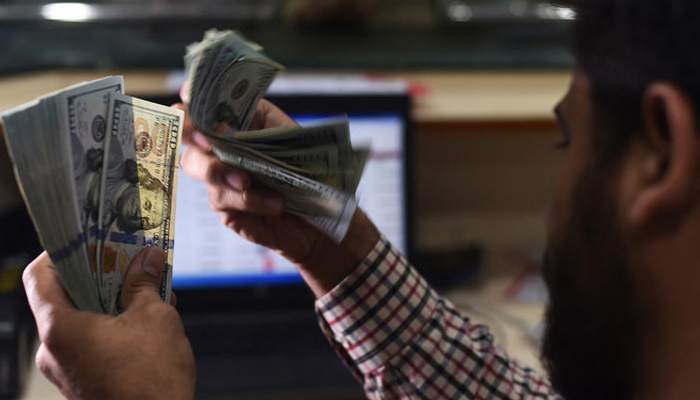SBP-held forex reserves plunge to $3.7 billion
After decrease of $923mn, reserves to provide import cover of less than a month
The State Bank of Pakistan (SBP)-held foreign reserves plunged to $3.7 billion, their lowest in more than eight years, as the nation of 220 million people struggles to meet its finance amid a stalled International Monetary Fund's (IMF) programme.
In a statement, the SBP said as of January 20, its reserves fell to $3,678.4 million due to external debt repayments, which will now provide an import cover of less than a month — 0.73 month to be exact.
The net foreign reserves held by commercial banks have also fallen to $5,774.8 million, bringing the total liquid foreign reserves to $9,453.2 million, the central bank's statement mentioned.
As the coalition government desperately seeks to revive the ninth Extended Fund Facility review, it had requested the Fund to send a delegation for a visit.
In response, IMF Resident Representative in Pakistan Esther Pérez Ruiz told The News that an in-person Fund mission is scheduled to visit Islamabad from January 31–February 9 to continue the discussions under the ninth EFF review.
"The mission will focus on policies to restore domestic and external sustainability, including to strengthen the fiscal position with durable and high quality measures while supporting the vulnerable and those affected by the floods; restore the viability of the power sector and reverse the continued accumulation of circular debt; and reestablish the proper functioning of the FX market, allowing the exchange rate to clear the FX shortage."
SBP Governor Jameel Ahmad had last Wednesday said that the country expects inflows from "next week", however, no physical funds have been received so far — except for a $2 billion rollover by the Abu Dhabi Fund for Development.
Pakistan banned the import of all non-essential luxury goods in May to avert a balance of payments crisis and stabilise the economy. However, following severe criticism from stakeholders the authorities concerned removed restrictions on the import of some goods to facilitate the industries.
The low reserves led the SBP to place import restrictions earlier last year, much to the dismay of several importers and businesses in Pakistan that cited these curbs as the reason behind shutting down or scaling back their operations.
Financial pundits have stressed the government to complete the IMF programme to pave the way for further inflows as they warn that a delay in reviving the Fund's programme could be catastrophic for the economically distressed nation.
British publication Financial Times has also warned that Pakistan’s economy is at risk of collapse with the government’s "failure to revive" the IMF deal.
According to the report, rolling blackouts and a severe foreign currency shortage are making it difficult for businesses to continue operations.
“Already a lot of industries have closed down, and if those industries don’t restart soon, some of the losses will be permanent,” founder of Macro Economic Insights Sakib Sherani said.
-
Global memory chip crunch puts spotlight on Apple; Will iPhone become more pricey?
-
Bitcoin plummets toward $60,000 as investors dump risky bets
-
Bitcoin crashes below $63K as regulatory pressure and market fears grow
-
Bitwise Crypto Industry innovators ETF: What investors should do in 2026?
-
Nintendo shares slide again as momentum fears grow
-
Gold, silver prices fallen sharply; What’s driving the drop?
-
Gold’s record climb: Experts question if its safety is ‘overstated’
-
Dubai unveils plans to construct street built with real gold












